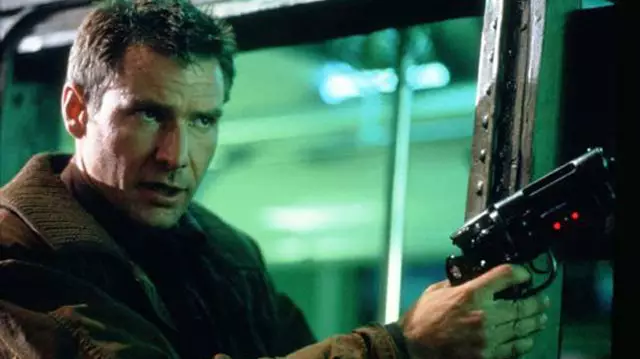Harrison Ford’s journey to becoming one of Hollywood’s most recognizable faces was not linear; it was forged through resilience and notable performances. In an era when his name did not resonate in the same way as it does today, Ford faced skepticism while vying for dominant roles. Particularly highlighted in Ridley Scott’s own retrospective remarks, Ford had only just completed his role as Han Solo in “Star Wars” when he was approached for the character of Rick Deckard in the 1982 sci-fi classic “Blade Runner.” This wasn’t just another casting choice; it was a vital leap from relative obscurity to nearly universal recognition. Scott’s financiers were cautious, asking the critical question, “Who is Harrison Ford?” This response underscores the struggle actors often face while trying to prove their mettle in an industry that places heavy weight on established names.
“Blade Runner” wasn’t just a pivotal role for Ford; it marked the beginning of a string of iconic performances. Alongside the beloved “Star Wars” saga, Ford’s exceptional embodiment of characters in the “Indiana Jones” franchise and “The Fugitive” solidified his status as a leading man. His ability to inhabit diverse roles—from an adventurous archaeologist to a wrongfully accused man on the run—showcases not just versatility but a deep understanding of the human experience. This unique blend of charisma, intensity, and vulnerability has allowed Ford to resonate with audiences across multiple genres, establishing a legacy that few actors can claim.
As Hollywood evolves, so does Ford’s presence within it. Recently, he stepped back into Deckard’s shoes in the sequel to “Blade Runner,” marking his return to a world that had further expanded since the original film. With the announcement of “Blade Runner 2099,” a Prime Video continuation, fans remain eager yet uncertain about Ford’s potential involvement. Regardless, his transition from big-screen leading man to television star with projects like the “Yellowstone” spin-off “1923” and Apple TV+ series “Shrinking” illustrates his adaptability and commitment to storytelling, even as he enters his 80s.
Ford’s driving force in maintaining his prolific career lies in his passion for collaboration and the creativity sparked by working with talented individuals. In his own words, he finds value in “essential human contact,” suggesting that his motivation goes beyond mere fame. Rather, it stems from a desire to engage in imaginative processes that allow him to connect deeply with others while creating art. It is this intrinsic love for the craft that fuels his continued output in an industry that often casts aside older actors.
In a world where celebrity status can be fleeting, Harrison Ford stands as an enduring testament to the power of resilience, adaptability, and a genuine love for storytelling. His journey from an unrecognizable actor to a cinematic icon is a narrative that resonates not just within Hollywood, but universally, inspiring both current and future generations of storytellers.

